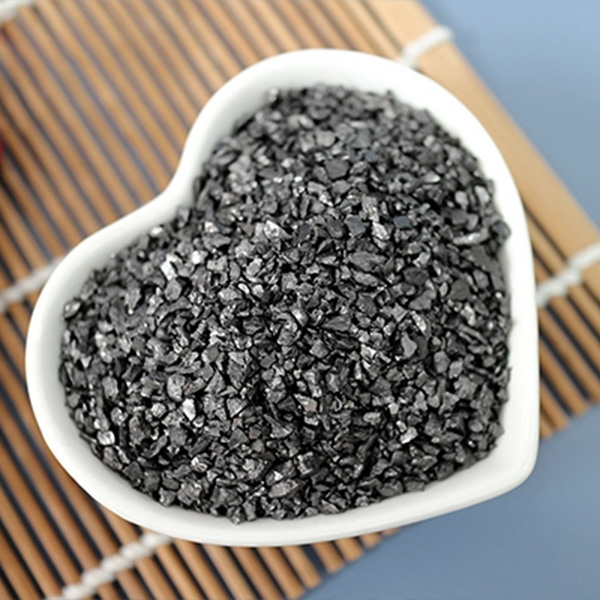Published by The Maritime Executive
Published by The Maritime Executive Graphite Electrode

Published by The Maritime Executive
Published by The Maritime Executive
Published Aug 3, 2023 11:41 PM by The Maritime Executive
If efforts to reduce carbon emissions fail, there may be a backup plan: geoengineering, the controversial science of modifying the climate by artificial means. The options include fertilizing the ocean's phytoplankton with iron, installing space-based mirrors or speeding up the weathering of CO2-absorbing minerals at a vast scale. While most are untested and potentially risky, one of them - manmade cloud seeding with SOx - has been in testing since the Age of Steam, and shipping is giving researchers the means to evaluate it.
SOx emissions "seed" cloud droplets and make the air more reflective for as long as the droplets last. Bright white "ship tracks" seeded by sulfur dioxide from stack exhaust are a common demonstration of this effect, and can be seen in satellite photos of the North Atlantic. This added reflectivity has a localized cooling effect, which has long been recognized. Recent research suggests that the SOx from the stack exhaust may cause a cooling effect even when the "track" is too thin to be visible to the naked eye, and it may have a more substantial impact on temperature than previously thought.
Shipping has historically been a large-scale SOx emitter because of its high-sulfur fuel, but the HFO tap was turned off in 2020 by the IMO. This handed climate researchers a readymade, global-scale experiment to test out SOx geoengineering - by examining what happens when the SOx stops. The early results suggest that IMO2020 had a big effect, and may even have caused part of the extreme ocean warming observed this year, according to a recent report in Science.
Last week, the North Atlantic posted its highest average temperature on record, just shy of 77 degrees F. There is still a month to go in the summer season and the record will likely broken again before the year is out, according to the National Oceanic and Atmospheric Administration (NOAA). According to Tianle Yuan, an atmospheric physicist at NASA’s Goddard Space Flight Center, the disappearance of air pollutants from HFO might be partly to blame for the surge in water temperature in this region. With less sulfur in today's fuel, there is less SOx in exhaust; with less SOx, less reflective clouds form, leading to less cooling and more heating.
In a paper published last year, Yuan and his colleagues found that the IMO2020 fuel change cut cloud tracks in key shipping lanes by half. In a follow-up paper currently in review, they estimate that this has a substantial effect on warming, concentrated in areas with heavy shipping activity like the North Atlantic. The reduction in reflective cloud cover over this region, plus an unrelated reduction in reflective airborne dust levels, “can account for most of the warming observed” in the North Atlantic, Yuan told Science.
This has implications for future geoengineers. If reducing SOx causes more warming, the reverse should also be true, researchers say. “It suggests pretty strongly that if you wanted to do it on purpose, you could,” atmospheric scientist Michael Diamond told Science.
Published Jan 23, 2024 10:33 PM by The Maritime Executive
The elevated security risk in the Red Sea has been bad news for almost every shipowner, but some parties may end up benefiting - or at minimum, may be able to continue their business as usual. American and Israeli shipping interests are at risk of attack, but Houthi leaders have explicitly said that Russian and Chinese vessels will be guaranteed safe passage. “Our goal is to raise the economic costs for [Israel],” Houthi spokesman Muhammad al-Buheiti told Izvestia last week....
Published Jan 23, 2024 7:43 PM by The Maritime Executive
The storm-damaged cruise ship Maud, marketed by Hurtigruten’s HX Expeditions, will remain out of service till mid-April as it undergoes repairs. The 16,150 gross ton cruise ship is currently at a shipyard in Bremerhaven, Germany to undergo a survey and planning repairs to its systems. The cruise ship was making a mid-December crossing of the North Sea from Norway to the UK at the end of a Northern Lights cruise when it encountered a strong storm. The...
Published Jan 23, 2024 7:03 PM by The Maritime Executive
A dredger has gone down at its berth at the port of Mykolaiv, Ukraine, spilling petroleum into the harbor. Environmental monitoring is under way, according to local authorities. Ukraine's State Environmental Inspectorate reports that the dredger Ginger went down at the port of Mykolaiv on January 15. The cause was not reported, but photos and water quality sampling showed evidence of worsening pollution from the wreck. As of January 19, petroleum concentration in the water was about 15 times normal...
Published Jan 23, 2024 6:49 PM by The Maritime Executive
Singapore marked a key milestone for its ship registry reporting that it has for the first time surpassed the 100 million gross registered tonnage mark with the naming today of a new VLCC tanker. It comes as the city-state works to maintain its role at the forefront of the maritime industry and a leader in bunkering and new technologies. The city was the backdrop for the naming ceremony for the VLCC Eagle Verzcruz, a newly built crude oil tanker...

petroleum coke © Copyright 2024 The Maritime Executive, LLC. All rights reserved.